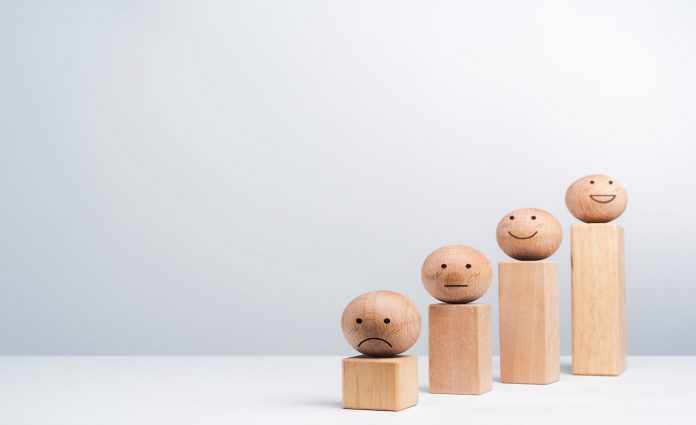Shared Destiny. Shared Responsibility.
“You might think more money, a better job, or Instagram-worthy vacations would make you happy. You’re dead wrong.”
Story at a glance
“You might think more money, a better job, or Instagram-worthy vacations would make you happy. You’re dead wrong.”
That’s according to Laurie Santos, a professor of psychology at Yale University who has been guiding people in the pursuit of happiness for almost four years through her renowned course: “Science of Well-Being.”
The class first began in March 2018, officially known as “Psyc 157: Psychology and the Good Life,” and was only taught in-person that first spring semester in a 1,200-person lecture hall. But after it became an instant hit, Santos made it available to the masses online via Coursera under the name “Science of Well-Being.”
The course is wildly popular, garnering media attention and consistent enrollments from the get-go. So far, more than 3.7 million people have taken Santos’s class.
However, it has been during the coronavirus pandemic that her course reached new heights, with monthly active learners increasing more than 3,000 percent in comparison to the same date the year prior.
Between March 2018 and March 2020, just before the onset of the coronavirus pandemic, approximately 500,000 people had enrolled in the course. Then, as the coronavirus pandemic began and initial lockdowns were enacted, enrollment skyrocketed.
On April 16, 2020, course activity peaked with 860,494 monthly active learners. One year prior, on April 16, 2019, the course had 22,522 monthly active learners.
“I do think people wanted to do more to protect their happiness during the pandemic,” Santos told Changing America. “I think people were getting great evidence-based advice about how to protect their physical health — mask up, socially distance, get a vaccine — but people were struggling with what to do to protect their mental health. The class provided that evidence-based advice for improving well-being.”
America is changing faster than ever! Add Changing America to your Facebook or Twitter feed to stay on top of the news.
What is the course?
This 10-week course examines the science behind improving one’s well-being, common misconceptions people have about happiness, and how to develop and implement strategies to “counteract” what interferes with being happy. This includes “happiness-boosting challenges” learners do as homework throughout the course to help them incorporate a personal wellness activity into their routines.
A reporter for Insider, Mara Leighton, recently tracked her journey taking the course and how it improved her mental health, ultimately incorporating pilates into her routine as a personal wellness activity. Consistently doing pilates is what Leighton says helps her reach her “flow state.” As taught in the course, a flow state is “the mental state in which a person performing an activity is fully immersed in a feeling of energized focus, full involvement, and enjoyment.”
“After Santos’ course, I understood that perfection shouldn’t be the goal of trying an activity — it’s your own concentration and effort that’s the reward,” Leighton wrote.
READ MORE STORIES FROM CHANGING AMERICA
YALE, GEORGETOWN, 14 OTHER TOP COLLEGES SUED FOR ALLEGED COLLUSION
STUDENT RAISES MORE THAN $70K TO START WOMEN’S SCHOLARSHIP IN RESPONSE TO PROFESSOR’S VIRAL REMARKS
HIGH SCHOOL PRINCIPAL WHO GOT LAP DANCES FROM STUDENTS UNDER INVESTIGATION
LAWMAKERS LINING UP BEHIND BILL TO BRING FOUR-DAY WORK WEEK TO AMERICA
While active learners have since steadily decreased since the initial pandemic surge as lockdowns and mandates were first lifted and people began to once again venture outside and engage in social events, active learners have still remained higher than pre-pandemic levels. On April 16, 2021, about a year into the pandemic and the course’s skyrocketing enrollment, “Science of Well-Being” had 62,706 monthly active learners — roughly 20,000 more than two years prior.
The enrollment surge is unsurprising. As the coronavirus pandemic set in, many struggled with mental health. An October 2021 journal article studying U.S. adults from March-April 2020 to March-April 2021 found depression rates had more than tripled in the first year of the pandemic.
Now, as the omicron variant has emerged, leading to another surge in coronavirus cases and newly reinforced mask and vaccination mandates, it’s plausible that people will again begin searching for ways to enhance their happiness and emotional well-being as they did previously.
“In class people learn about a lot of strategies that are helpful for navigating the mental health hit that comes from life during omicron. For example, you’ll hear about ways to boost your social connection, even if you can’t get together in person,” Santos explained.
“You’ll also learn that self-care — doing things to boost our own well-being — often comes from focusing on others and doing something nice for the people you care about,” said Santos, adding that implementing “strategies to savor the small things — that morning cup of coffee or a nice shower” are invaluable small steps toward improving your well-being.
“By using evidence-based practices like these,” said Santos, “we’ve shown empirically that people tend to show a significant boost in happiness after taking the class.”
“Science of Well-Being” is available online through Coursera, and you can hear Santos delve deeper into the scientific research behind happiness in her podcast, “The Happiness Lab.”
READ MORE STORIES FROM CHANGING AMERICA
SOCIAL MEDIA MADE SELENA GOMEZ FEEL SHE ‘WASN’T PRETTY ENOUGH’
ALBERT EINSTEIN REVEALED THE SECRET TO HAPPINESS — AND HE USED JUST 17 WORDS
LUSH COSMETICS QUITTING SOCIAL MEDIA TO BRING AWARENESS TO MENTAL HEALTH
SITTING MORE AND LESS MOVEMENT LINKED TO SPIKE IN DEPRESSION AND ANXIETY SYMPTOMS
Virginia, Nevada, the state of Washington and Colorado currently have laws in place to have 988 in working order by July 2022.
Policymakers across the board must think and act broadly to reverse the tide of social isolation and build social connected communities.
“So this is what my 8th grade daughter brought home from school today. I am beyond pissed,” one parent said.
America is changing fast! Sign up for our newsletter to stay informed and engaged.






